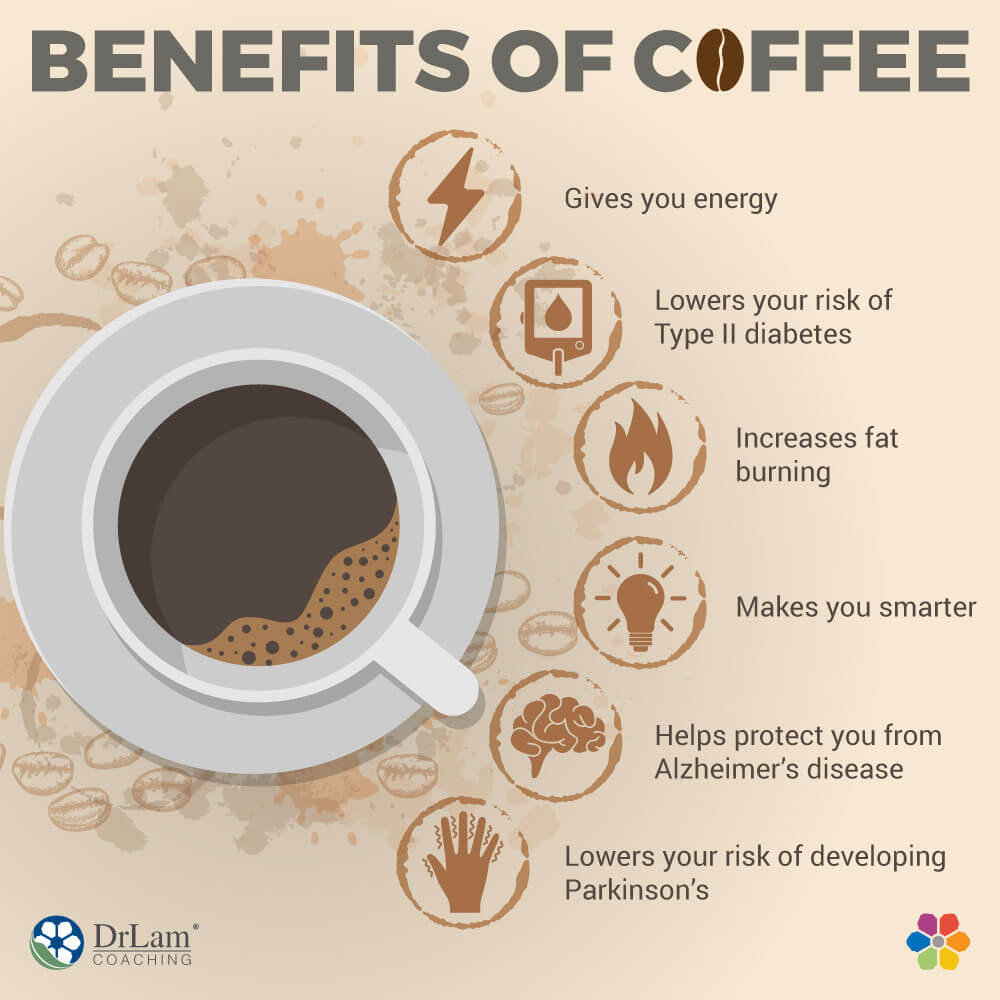Quitting coffee can lead to reduced anxiety, improved sleep quality, and decreased headaches. It may also help lower blood pressure and heart rate, leading to overall improved health.
Are you a coffee lover considering the health benefits of quitting coffee? Many people rely on their daily caffeine fix to jumpstart their mornings or keep them going throughout the day. However, quitting coffee can have several potential health benefits that you might not be aware of.
From reduced anxiety and improved sleep quality to better nutrient absorption and balanced energy levels, giving up coffee could lead to a variety of positive changes in your overall well-being. We’ll explore the potential health benefits of quitting coffee and how it could impact your daily life.

Credit: www.drlamcoaching.com
Introduction To Coffee Consumption
Quitting coffee can lead to reduced anxiety, improved sleep, and decreased headaches. It helps break the cycle of caffeine reliance and allows for alternative stress management. Additionally, quitting coffee may lead to more balanced energy levels and improved nutrient absorption, potentially reducing overall calorie intake.
The Role Of Coffee In Daily Life
Coffee is a popular beverage consumed by millions of people worldwide. It is a part of daily life for many and is often used as a morning ritual to kickstart the day. The caffeine in coffee provides a quick energy boost and improves mental alertness. However, excessive coffee consumption can lead to negative health effects such as increased anxiety and heart palpitations.Common Reasons For Quitting Coffee
Many people choose to quit coffee due to various reasons such as wanting to reduce caffeine intake, improve sleep patterns, and reduce anxiety. Quitting coffee can lead to fewer jitters, reduce heart palpitations, and improve sleep quality. It can also help break the cycle of heightened anxiety and reliance on caffeine to cope. By quitting caffeine, individuals can explore other ways to manage their stress and improve their overall health.The Benefits Of Quitting Coffee
There are several benefits of quitting coffee, including:- More balanced energy levels
- Better sleep quality
- Reduced anxiety
- Improved vitamin and mineral absorption
- Reduced overall daily calorie intake
- Saving money by not purchasing coffee daily
Immediate Effects Of Quitting
The decision to quit coffee can lead to immediate effects on your body and mind. Understanding the changes that occur in the initial stages of quitting can help prepare you for the transition. Here are the immediate effects of quitting coffee:
Recognizing Withdrawal Symptoms
After quitting coffee, it’s common to experience withdrawal symptoms as your body adjusts to the absence of caffeine. These symptoms may include headaches, fatigue, decreased energy, and decreased alertness. You might also feel drowsy, less content, and irritable. It’s important to recognize these symptoms as temporary and part of the adjustment process.
Timeline Of Physical Changes
Within the first 24 hours of quitting coffee, you may notice the onset of headaches and fatigue due to caffeine withdrawal. Over the first few days, decreased energy and alertness may be apparent. As the first week passes, you might experience a shift in mood, feeling less content and irritable. These physical changes are part of the body’s adaptation to the absence of caffeine.
Mental Clarity And Mood
When you decide to quit coffee, you may experience various health benefits, especially when it comes to mental clarity and mood. Let’s explore how quitting coffee can positively impact your focus and mood.
Enhanced Focus Without Caffeine
Quitting coffee can lead to enhanced focus without the need for caffeine. Your brain may function more efficiently without the highs and lows of caffeine consumption.
Mood Improvements Post-caffeine
After quitting caffeine, many individuals report significant mood improvements. Anxiety levels may decrease, and you may find yourself feeling more balanced and calm throughout the day.
Energy Level Adjustments
Quitting coffee can lead to significant adjustments in energy levels, affecting both short-term and long-term energy benefits. Understanding how the body stabilizes energy without coffee and the long-term energy benefits can help individuals navigate the transition away from caffeine.
Stabilizing Energy Without Coffee
When individuals quit coffee, their bodies undergo a period of adjustment as they wean off the caffeine. During this time, it’s common to experience fluctuations in energy levels as the body adapts to functioning without the stimulant. While initial energy levels may dip, the body gradually adjusts to a more stable and sustainable energy pattern.
Long-term Energy Benefits
Over time, the absence of caffeine can lead to more consistent and sustained energy levels throughout the day. Without the highs and lows induced by caffeine consumption, individuals may experience improved alertness, reduced fatigue, and enhanced overall energy levels. This long-term benefit can contribute to a more balanced and stable approach to energy management.
Sleep Quality Improvement
Quitting coffee can have a significant impact on improving sleep quality. The correlation between caffeine consumption and sleep patterns is well-documented, and eliminating this stimulant from your routine can lead to noticeable enhancements in the duration and quality of your sleep.
Impact On Sleep Patterns
Quitting coffee is linked to an improvement in sleep patterns, with many individuals experiencing longer and more restful nights. The absence of caffeine can lead to a more consistent sleep schedule, reducing instances of waking up during the night and promoting a deeper, more rejuvenating sleep.
Correlation Between Caffeine And Sleep Quality
Research has established a clear correlation between caffeine consumption and compromised sleep quality. The stimulating effects of caffeine can disrupt the body’s natural sleep-wake cycle, making it more difficult to fall asleep and stay asleep for an adequate duration. By eliminating caffeine, individuals can experience a notable improvement in their overall sleep quality.

Credit: www.self.com
Physical Health Enhancements
Blood Pressure And Heart Rate
Quitting caffeine may lower blood pressure and reduce heart rate.
Digestive Benefits
Eliminating caffeine can improve digestion and reduce gastrointestinal discomfort.
Nutritional Absorption
When it comes to the nutritional absorption, quitting coffee can have a significant impact on the body’s ability to absorb essential vitamins and minerals. Let’s explore how quitting coffee can enhance the absorption of nutrients and positively influence overall health.
Caffeine’s Effect On Nutrient Uptake
Caffeine, commonly found in coffee, has been known to interfere with the body’s ability to absorb certain nutrients. It can hinder the absorption of essential minerals such as iron, calcium, and magnesium, affecting overall nutrient uptake in the body.
Benefits For Vitamin And Mineral Absorption
Quitting coffee can lead to improved absorption of vital vitamins and minerals. By eliminating the interference caused by caffeine, the body becomes more efficient in absorbing nutrients, promoting better overall health and well-being.
Anxiety And Stress Reduction
Reduce anxiety and stress by quitting coffee and experience improved sleep and balanced energy levels. Lower caffeine intake can lead to reduced anxiety, better sleep, and fewer headaches, promoting overall wellness and relaxation.
Relationship Between Caffeine And Anxiety
Many people turn to coffee as a quick fix to combat anxiety and stress. However, caffeine, the primary ingredient in coffee, can actually worsen anxiety symptoms. Studies have shown that caffeine can increase heart rate, blood pressure, and cortisol levels, which can trigger feelings of anxiety and stress. Additionally, caffeine can interfere with the production of serotonin, a neurotransmitter that helps regulate mood. Without enough serotonin, people may experience mood swings and heightened anxiety.Stress Management Without Caffeine
While quitting coffee may seem like a daunting task, it can actually lead to better stress management. Rather than relying on caffeine to cope with stress, individuals can try other methods such as exercise, meditation, and deep breathing techniques. Exercise has been shown to release endorphins, which can help boost mood and reduce stress. Meditation and deep breathing can also help calm the mind and reduce anxiety symptoms. In conclusion, quitting coffee can have numerous health benefits, including anxiety and stress reduction. By understanding the relationship between caffeine and anxiety, individuals can make informed choices about their caffeine consumption and explore other stress management techniques.Financial And Lifestyle Perks
Quitting coffee comes with a host of benefits beyond just health improvements. Let’s delve into the financial and lifestyle perks that await those who decide to kick the coffee habit.
Saving Money On Coffee Expenses
Say goodbye to those daily trips to the coffee shop that drain your wallet. By quitting coffee, you can save a significant amount of money over time. Consider the cost of a daily latte or cappuccino – those expenses add up quickly. Redirecting these funds to savings or other indulgences can lead to a more fulfilling financial future.
Lifestyle Changes And Productivity
Without the caffeine rollercoaster, your energy levels become more stable throughout the day. This newfound consistency can boost your productivity and focus, leading to better performance at work or in your daily activities. Additionally, kicking the coffee habit can improve your sleep quality, helping you feel more refreshed and alert each morning.
Conclusion: Embracing A Coffee-free Life
Transitioning to a coffee-free lifestyle can lead to a myriad of health benefits. Improved sleep quality, reduced anxiety levels, and balanced energy throughout the day are just some of the positive outcomes of quitting coffee. Embrace this change for a healthier and more energized you.
Are you ready to bid farewell to your daily coffee routine and embrace a healthier lifestyle? Let’s explore the benefits of quitting coffee and how it can positively impact your well-being.
Summarizing The Health Benefits
- Improved sleep: Quitting coffee can lead to better quality sleep and reduced restlessness at night.
- Reduced anxiety: Lowering caffeine intake can help alleviate feelings of anxiety and promote a calmer state of mind.
- Enhanced energy levels: Say goodbye to caffeine crashes and experience more consistent energy throughout the day.
- Weight management: Quitting coffee may aid in shedding excess belly fat and reducing overall calorie intake.
Personal Stories And Experiences
Many individuals have shared their personal journeys of giving up coffee and reaping the benefits of a coffee-free life. From feeling more energized to experiencing reduced stress levels, the decision to quit coffee has positively transformed their well-being.

Credit: www.pinterest.com
Frequently Asked Questions
What Happens To Your Body When You Quit Coffee?
When you quit coffee, you may experience symptoms like headache, fatigue, decreased energy, irritability, and difficulty concentrating.
Is It Beneficial To Stop Drinking Coffee?
Quitting coffee can lead to improved sleep patterns, fewer jitters, and reduced heart palpitations. Excessive caffeine consumption can lead to a cycle of heightened anxiety and reliance on caffeine to cope. By quitting caffeine, you can stop this cycle and explore other ways to manage stress.
However, symptoms of caffeine withdrawal may include headaches, fatigue, and decreased energy levels. Ultimately, the decision to quit coffee should be based on individual health and lifestyle factors.
Is It Healthier To Not Drink Coffee?
Quitting coffee can lead to reduced anxiety, improved sleep, and better nutrient absorption, benefiting overall health.
How Quitting Coffee Improves Your Health?
Quitting coffee can boost health by reducing jitters, heart palpitations, improving sleep patterns, and breaking anxiety cycles.
Conclusion
Quitting coffee can lead to reduced anxiety, improved sleep, and balanced energy levels. By eliminating caffeine, you may experience better overall health and break the cycle of caffeine dependence. Consider exploring alternative ways to manage stress for a healthier lifestyle.

